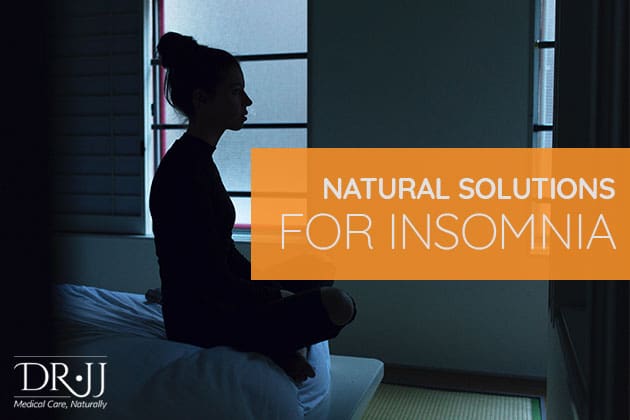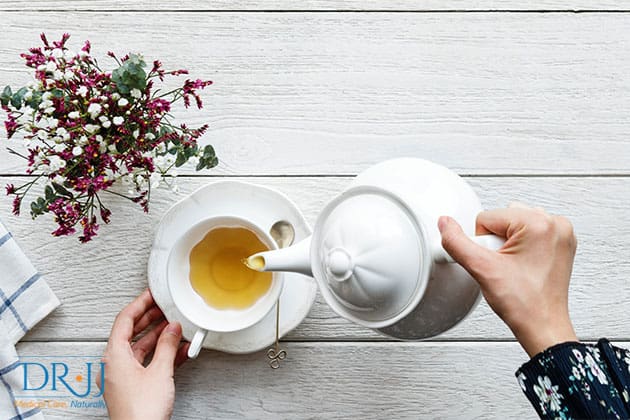
Sleep is a vital aspect of human life.
Not a single one of us could survive without it.
It gives you the energy you need to work, and it also helps with the growth and development of your skin and hair, and other organs of your body.
RELATED: Naturopathic Solutions For Sleep Issues
It is recommended you get around 7-9 hours of sleep a night but this may vary depending on your age, or other demographic factors.
There are various types of sleep issues that may require naturopathic solutions.
When you deal with sleep issues, you may be dealing with insomnia.
Insomnia is a common sleep disorder.
This disorder impacts important aspects of your sleep, including staying asleep, falling asleep, and the quality of your sleep.
This may impact your energy levels when you wake up in the morning, and you may feel fatigued often.
If you suspect you may have insomnia, you’re not alone.
It seems that almost everyone gets hit with insomnia at some point in their lives, but luckily for most, it’s rarely chronic.
Insomnia can be more common when you are dealing with certain situations.
That includes pregnancy.
I frequently get approached by my patients for support for insomnia during pregnancy.
I also get approached by clients for help at other times in their lives, so I thought it would be a great topic to share some information about.
Here is the full video where I outline some natural solutions for insomnia.
What Is Insomnia?
Insomnia, quite simply, is when you cannot sleep.
Of course, there are various levels of severity for this condition.
For instance, acute insomnia is when you have stress, and anxiety for a big event in your life.
If you experience stress or anxiety, there are naturopathic solutions for stress and naturopathic solutions for anxiety that may help.
These big events could be a job interview or a wedding, and this stress causes you to be up all night thinking about it.
In cases that involve acute insomnia, it’s not surprising that you’re having trouble sleeping.
This is common and normal.
It’s normal because almost everyone deals with acute insomnia due to a stressful situation at one point in your life or another.
Chronic insomnia, however, is persistent sleeplessness.
This chronic insomnia can impact your ability to function on a daily basis.
It may cause you to feel tired in the morning, or lack the energy necessary to get through your day and perform your activities of daily living.
There are certain health conditions that can sometimes trigger insomnia as well.
These include:
- Asthma – insomnia is reported in about 1/3 of people with asthma
- Depression – about 3/4 of people with depression also deal with insomnia
- Cancer – it’s estimated that around half of cancer patients have trouble sleeping
- Diabetes – insomnia can be an issue for people with both type 1 and type 2 diabetes
- And many others
Heart disease and hypertension can also be triggers for insomnia.
RELATED: Naturopathic IV Therapy For Hypertension.
If you’re having difficulty falling or staying asleep, I’m here to help.
Does Insomnia Affect Your Immune System?
Your immune system provides you with a defence system against illnesses you may catch when out and about in your environment.
Insomnia can affect your immune system in many ways.
However, insomnia isn’t usually caused by a compromised immune system.
There are exceptions to that, but they’re fairly rare.
What Happens When You Don’t Sleep Well?
Fatigue is what you experience when you are low on sleep.
A lack of sleep puts off your mental concentration.
Your mood might be off, and you may feel more depressed.
RELATED: Superfoods For A Stronger Mind
Sleep is also when your body has a chance to repair itself, and when it gets to digest.
As your body goes through this process of digestion, the organs involved in this also heal, and repair as well.
If your body isn’t able to have that nightly repair, you might notice more aches and pains in the day following.
This is because the lack of sleep results in a lack of growth and repair to your body.
Getting A Clean Sleep: Addressing Your Sleep Hygiene
Getting a good night sleep is crucial.
This may be more difficult for certain individuals than others.
On some occasions insomnia can be caused by poor sleep hygiene.
When I have you as a patient come to me with insomnia or sleep issues, one of the first things I will ask you is about what I call your ‘sleep hygiene’.
Here are those ideal circumstances for sleeping:
- Routine at bedtime is very important
- Try to go to bed and wake up at roughly the same time every day
- Don’t do anything stimulating before bed, unless it’s sex
- Don’t watch the news or anything else that may get you angry or riled up
- Drink no caffeine for at least 3 hours before you go to bed, though for some, caffeine takes longer to clear your system
- Have complete darkness in your bedroom: you shouldn’t be able to see your hand in front of your face
- Keep the temperature a little lower at night
- Don’t use your phone or any other electronic screens within 30 minutes of going to bed
By following these steps, you can increase the chances of a good night’s sleep and reduce your risk of insomnia.
Dr. JJ’s Supplements For Insomnia
There are a lot of supplements that can be used for insomnia but I will recommend a few here.
Some of these you will have heard of before, but perhaps not others.
Have a read through and see if they sound like something that may help you.
If so, consider contacting me for a consult to see if I could help you to provide treatment for your insomnia.
1. Chamomile Tea
Chamomile tea is an herb with medicinal properties.
RELATED: What Is Botanical Medicine
It’s one of the main recommendations for people who can’t sleep, and is a gentle sedative.
Sometimes you can add other ingredients to your chamomile tea to make it more effective in one way or another.
Skullcap, hops, and passion flower are all good options.
Although skullcap is good, a downside is that it can give you very vivid dreams, so it is important to consider a balance here.
Jamaican dogwood is a strong sedative tea too, and is extremely reliable in getting you to sleep without having to worry about developing a habit.
In fact, there are no addictive qualities to any of the teas I’ve mentioned here.
2. Coffea Cruda
Coffea cruda is a homeopathic coffee.
Coffee keeps you up, so homeopathically, if you take coffea cruda, it’s meant to calm you down.
Homeopathic passion flower is an alternate to coffea cruda, and serves the same function.
3. Magnesium
Magnesium has many benefits, but in this case, we’re using it because it’s a good antispasmodic and a muscle relaxant.
Magnesium helps your body calm down, helps with cramps, and can hit the pause button on restless leg syndrome.
If you want to get more magnesium in your diet to help with your sleep, consider adding legumes, nuts, whole grains, and spinach, and other green leafed vegetables.
4. Journaling
Journaling is a tried and true method of getting your head ready for bed.
This is because it helps to get all your ruminating thoughts out of the way and counteract them with the facts of a specific situation.
If it doesn’t appeal to you, then simply try to write down the things that are on your mind before you curl up.
You can get your thoughts on paper and then you can put them aside for the night, freeing up your mind to float into sweet slumber.
Alternately, if you enjoy the process of writing, use this journaling time to explore your feelings, and find that deep emotional release.
This emotional release will allow you to enjoy the sleep of a child.
Questions? Ask Dr. JJ
If you want more information on some of these natural remedies, I encourage you to contact me, and I’ll be more than happy to answer your questions.
If you find that you’re challenged with a period of chronic insomnia, or you have recurring acute insomnia, call now to book your assessment, and let me help you find relief in sleep again.
Book your appointment with me, Dr. JJ, ND today.
If you have questions about naturopathic medicine, or you’d like to take your first step into the world of naturopathy, contact me, Dr. JJ, and let’s book an appointment.
Yours in health,
Dr. JJ Dugoua, Naturopathic Doctor
600 Sherbourne St, Suite 315,
Toronto, ON M4X 1W4
-https://goo.gl/maps/6VDXwiCihRpDRo5A9
Dr. JJ Dugoua is a naturopathic doctor in Toronto and has a PhD in Pharmaceutical Sciences. His clinic provides solutions for many health concerns and has a special focus on thyroid health issues.



